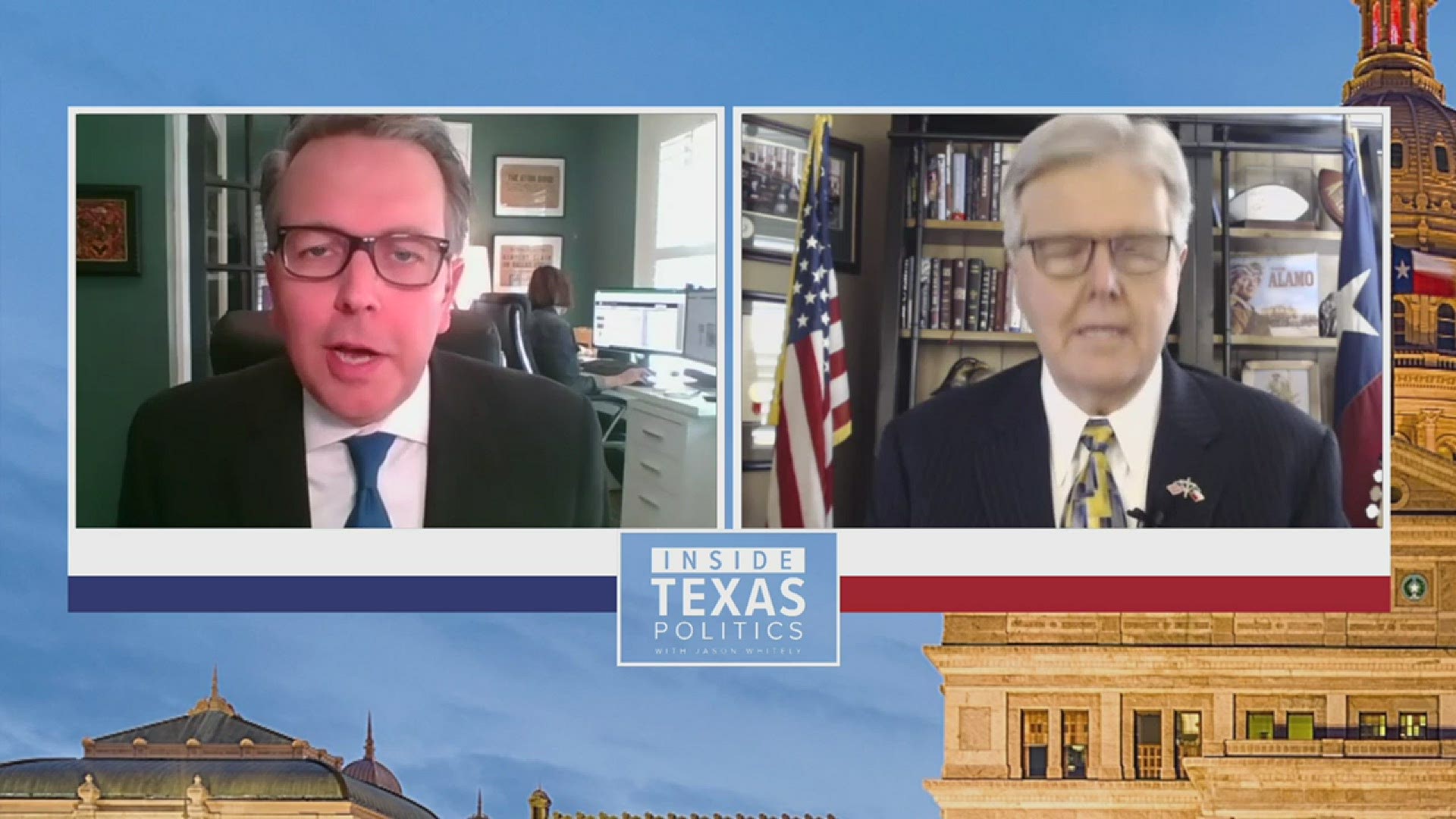Nothing about the Texas legislature was normal when lawmakers gaveled into session in January.
Then came February and the deadly statewide power outages. Now as of March 10, Gov. Greg Abbott is reopening Texas and eliminating the mask mandate.
Lt. Gov. Dan Patrick, the No. 2 official in the state, looks ahead at how the state will handle all of these issues.
On Wed., March 10, the state will reopen 100% and the mask mandate will be lifted.
Patrick said you will still see him wear a mask sometimes, out of respect to others who are still wearing masks.
In terms of solutions for the power crisis that struck Texas, Patrick said there's still a lot to learn about what happened before legislators can take action.
How the state may restructure follow its power crisis
For a couple of weeks, we've asked what concrete changes might come out of last month's deadly power outages. State Sen. Nathan Johnson shared something interesting.
One idea being discussed at the capitol is to maybe put the Railroad Commission, which oversees natural gas pipelines, under the Public Utility Commission, which oversees electricity.
The two commissions are interdependent on each other in Texas. Natural gas fuels most electric power plants in our state.
Johnson said he believes restructuring would address some of the oversight issues within the system.
"It addresses some of the problems we need to address," he said on Inside Texas Politics.
Johnson, a Democrat from Dallas, serves District 16.
Stimulus package is closer to passing, but is not there yet
Congress has talked about giving taxpayers another stimulus package for months. This weekend it looks like that is getting closer to reality.
Rep. Michael McCaul talks about why he voted against the latest stimulus proposal and the threats that are facing the U.S. Capitol.
McCaul, a Republican who represents a vast part of central Texas from Austin to Houston, said he voted against it because much of all the items that were included that didn't relate to the pandemic or vaccines.
"You're talking about almost $2 trillion now, you're getting to about the size of the GDP in terms of our national debt," said McCaul.
He also said he wished that Pelosi and Schumer had made it a bipartisan effort.

